Igor de Rachewiltz — scholar, colleague, friend — passed away on this day one year ago. We are privileged to be able to publish the edited transcript of an interview that Igor gave to the editors of the journal Chinoiresie shortly before his death.
I am particularly grateful to Nicholas Loubere for his work on the transcript. Previously, I had the pleasure of working with Nicholas to publish the digitised version of From China, Looking Out, the Inaugural Lecture presented by Owen Lattimore, also a renowned scholar of Mongolia, on 21 October 1963 upon his taking up the professorship of Chinese Studies at the University of Leeds. Nicholas located this long-forgotten text and made it available in online form.
For details of Igor de Rachewiltz’s last work, a translation of the 1716 Mongolian version of the story of King Gesar of Ling (Arban ǰüg-ün eǰen Geser qaγan-u tuγuǰi orosiba) with Li Narangoa, see the Foreword and Introduction to Joro’s Youth: the first part of the Mongolian epic of Geser Khan. For the full text, see here.
My thanks, as ever, to Lois Conner, for selecting some of the work she made in Mongolia (Монгол Улс) in 1997 to accompany this interview.
***
See also Remembering Igor — our secret history.
— Geremie R. Barmé, Editor, China Heritage
30 July 2017
Of Tartar Princesses, Poetry and Mongol Khans
Igor de Rachewiltz was a renowned Italian scholar of Mongolia. He began his academic career over seventy years ago as a teenager studying Japanese and Chinese under the legendary Giuseppe Tucci in Rome. He went on to pursue his interests in Mongolian and Mongolian history. In the mid 1950s, he moved to Canberra, Australia, where he worked at The Australian National University. He would become one of the world’s leading authorities on Genghis Khan / Chinggis Khan and Sino-Mongol relations during the thirteenth and fourteenth centuries.
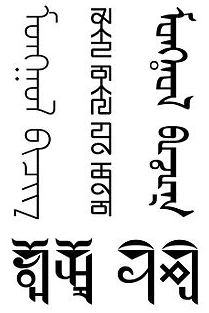
Most notably, Igor de Rachewiltz spent decades translating The Secret History of the Mongols 元朝秘史, a thirteenth-century Mongolian account of the life of Chinggis Khan (Činggis Qa’an; Temüjin, c.1162-1227).
The following interview was Igor’s last public statement on his work. On 30 June 2016, shortly after we recorded the following exchange, he passed away. We are profoundly grateful for the time we were able to spend with him, for his intellectual generosity and for his delightful sense of humour. Although Igor recalled with fondness a time when scholarly work was grounded not in the impersonality of computers, but in real human relationships built up through correspondence, camaraderie and humour, he readily shared his work with upcoming generations of scholars.
For a link to the recorded interview, click here. &, for the open access version of The Secret History of the Mongols: A Mongolian Epic Chronicle of the Thirteenth Century, click here.
— Ivan Franceschini & Nicholas Loubere
Editors, Chinoiresie
An Interview with Igor de Rachewiltz
A Discovery of Asia
Ivan: You grew up in Italy during the Fascist and post-war periods, how did you become interested in Asia?
Igor: Well, I developed an interest in Asia when I was only fourteen. It was during the war, 1943, in fact — I was born in 1929. My home in Rome was very close to the naval attaché of the Japanese Army, so I got to know the family of an official there, and I immediately fell in love with Japanese writing. The children of the family were studying Japanese with their parents, and I was allowed to join them and learn written Japanese. They soon suggested that I should attend a school evening Japanese classes. I took their advice and, as a boy in shorts I went to IsMEO (Istituto italiano per il Medio ed Estremo Oriente [subsequently Istituto Italiano per l’Africa e l’Oriente]) located in Palazzo Brancaccio. The director of the institute was the famous religious historian and philologist of India and Tibet, Giuseppe Tucci.
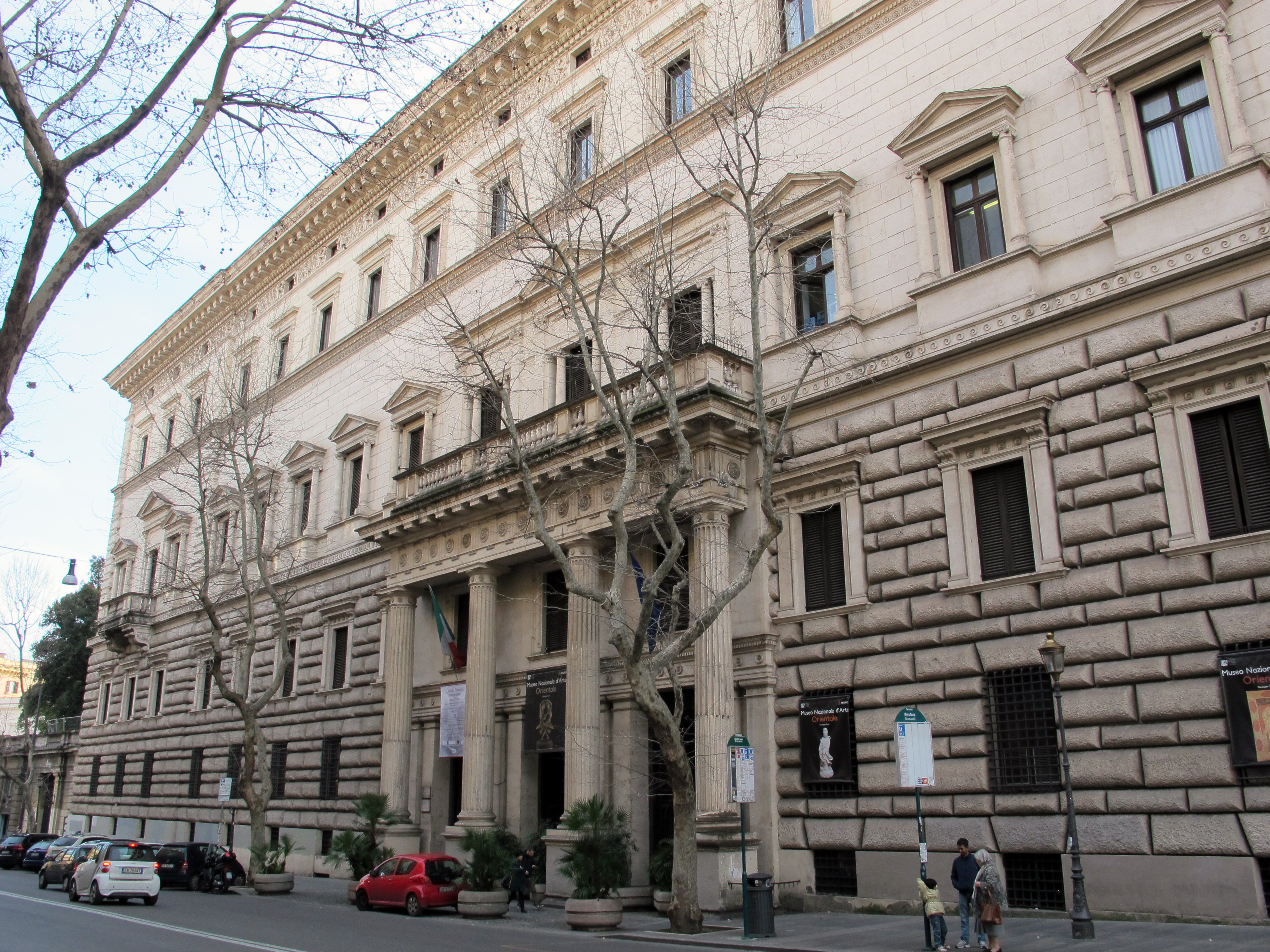
Ivan: Can you also tell us about your first meeting with Tucci?
Igor: When I presented myself at IsMEO the secretary took one look at me and asked: ‘What do you want?’ ‘I would like to enrol in Japanese,’ I replied. ‘Isn’t it a bit too early for you to study this difficult language? Why don’t you wait until you are at university?’ I responded: ‘Well, because I have some free time and I am very interested in the script, I’d like to learn how to write Japanese and to read it.’ And she said: ‘You really should think it over before you decide to take such a serious step.’
At that very moment Professor Tucci came out of his office, looked at me and asked the secretary: ‘What does this boy want?’ She explained and he responded: ‘Oh, enrol him immediately; I was his age when I started studying Chinese.’ Of course, at that time, I didn’t know anything about Tucci.
Nicholas: Didn’t you also have some family connections, or imagined family connections, that sparked your interest in Asia?
Igor: Yes, several members of my family — my grandmother, my sister, and maybe others — had what seemed to be very pronounced Mongolian features. Because of this there were jokes about our maternal ancestry. The story circulating in the family, one which everybody mentioned at parties, was that my mother’s great-great-grandmother, or perhaps great-grandmother, was a Tartar princess from the city of Kazan in Tatarstan and it was she who had a connection with a branch of the descendants of the Golden Horde. I’m not sure which branch it was, because it was just a story. Anyway, I was never able to find any documentation or confirmation of any of this in the family papers.
Ivan: Does this story have any connection to your decision to move on to study Mongolian?
Igor: Yes. I think subconsciously it had an impact because I had heard about the Mongols and the Tartars at home. Then, in 1948, somebody gave me an Italian translation of Michael Prawdin’s Genghis Khan and His Successors which recounts the fascinating story of Temüjin, who became Chinggis Khan. The book also contains illustrations, one of which is of the famous letter that the Great Khan Güyük sent to the Pope in Rome.
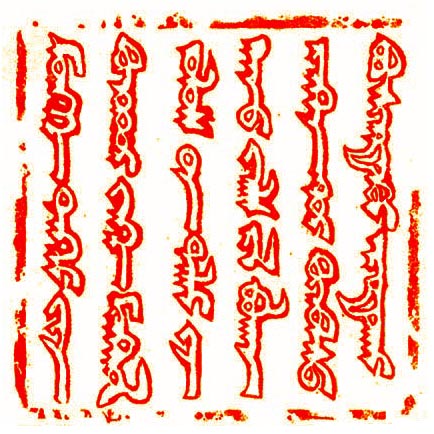
I was entranced by the beauty of the writing, the vertical writing of the Mongols, which they had borrowed from the Uyghur Turks at the beginning of the thirteenth century. So I decided that I absolutely had to learn to read Mongolian. By that time I had been studying Chinese for several years and, although I was always in love with Chinese, it was no longer the novelty that it had previously been.
I began studying Mongolian by myself, and then at university in Rome — a six-month course given by Professor Rossi. To start with, I obtained a copy of the 1846 translation into Mongolian of the Four Gospels and The Acts of the Apostles of the New Testament done by two Scottish missionaries. So I learned to read Mongolian and was absolutely hooked. I soon realised that my life was going to be spent with one foot in China and the other foot in Mongolia; I was only interested in the written languages — the more difficult the test the better. It was clear that I was born to pursue a vocation of code breaking. If something is difficult, almost impossible to read and understand, then I’m really challenged and it gives me the greatest pleasure to decipher it, to break the code.
Art in the Orientalism of Ezra Pound
Ivan: One last question about your family before we turn to Chinggis Khan and the Mongol empire. Your brother was married to the daughter of Ezra Pound. We also came across letters that Ezra Pound wrote to you, which were published a few years ago. Can you say something about this other family connection?
Igor: I met Ezra Pound in Italy after his release from St. Elizabeths Hospital in Washington D.C. We had been in correspondence for several years before we actually met at my brother’s house. He was very good to me because he was in love with China and things Chinese. At the time I was working my way through the Four Books 四書 [論語、孟子、大學、中庸], so he immediately sent a very nice pre-war Shanghai edition of Mencius 孟子. This was done through his agent, who was one of the greatest, if not the greatest, Sinologists in America — Achilles Fang [Achilles Chih-t’ung Fang 方志浵; 1910-1995], who was at the Harvard-Yenching Institute, but was virtually ignored there.
Pound was not able to do much personally because he was in this asylum for the criminally insane in Washington. He had to rely on his wife, his friends and Fang for scholarly support. In fact, the best book that Pound wrote is his translation of the Shijing 詩經, or Book of Odes. I think it’s a brilliant piece of work. The professional Sinologists derided it, and him, when it first appeared. But they all had to shut up when the greatest living Sinologist at that time, Professor Bernhard Karlgren, was asked: ‘Which is the best translation of the Book of Odes?’ Karlgren very candidly indicated Ezra’s translation, because Pound had a poetical understanding which allowed him to translate this classic in a way that captured its spirit and put it in a very concise form.
Ivan: Isn’t the reason he was derided by Sinologists because he believed that he could translate Chinese without actually knowing the language? You’re a philologist, what do you think of Pound’s method of translation?
Igor: As T.S. Eliot used to say: Pound was the best wordsmith of the language, and by language he meant English. He reformed English; he was a real genius. He was able to say in a few words what people normally need five lines to say. That’s why his letters are sometimes difficult to understand because they are almost cryptic in their conciseness. Incidentally, this is something he learned from Chinese via Japanese, and through a technique of translating Chinese poetry into English. He used the papers of Ernest Fenollosa, who was a scholar of Japanese not Chinese, to train himself to think and write very synthetically, and to eliminate all the things that are not absolutely necessary.
Now, Chinese has a very simple grammar, and all you had to do was learn a lot of words and expressions, which Pound actually did. His main tool was dictionaries, first Morris and then Matthews. Because he was always interested in the poetic element of Chinese, he translated a lot of Chinese poetry, including the Book of Odes, and Confucius. When it came to poetry he already had somebody else’s translation at hand — I don’t know whether Pound ever actually translated anything from Chinese that had not been translated before. He had all the other translations available to him. In fact, the only text that he took with him when they arrested him in Rapallo at the end of the war was Legge’s translation of the Four Books. And he used it all the time. His translations, on the whole, are based on the translations of Legge and others. But it was the way he interpreted the texts which made it poetic. He had a sensitivity which went beyond the poor, simple understanding of the texts. I would never use a translation by Pound for linguistic accuracy, but we have to take into account the subject he deals with. It’s one thing if he is dealing with philosophy, but something else if it is poetry. For poetry, I would very much rely on his understanding. He took many liberties, but it reads so well and the basic meaning is preserved because he did not have to translate that from Chinese into English. He had half a dozen translations, so he knew how scholars understood the texts.
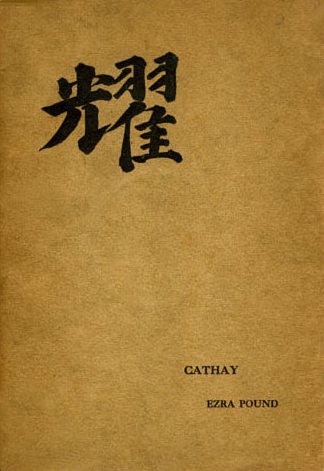
But when you read a purely academic translation of poetry it leaves you unmoved. Certainly, you are safe, because you know what it means. However, if you have a poetic mind, that’s dull, it’s not poetry. When you read Pound you immediately realise that this man got it. I have a copy of his book on my desk at home because in the evening I just really love to pick it up and read his translations of these short poems. He is able to convey the meaning in a few short words, maybe even using some form of common American slang for when two lovers talk to each other, because the short poems in the Book of Odes deal quite a bit with courtship and sex. And it’s just fantastic. You just laugh: Who else would have thought to translate these poems in such a way? Because it’s the joy or the love of the girl who is wooing the boy and the boy who responds, and so on. You have just to read it to understand. When it comes to Confucius and Mencius I find that they make very dull reading, even at the best of times. The more accurate the translation the less I like it myself. But, of course, this is a matter of taste.
The Secret History of the Mongols
Nicholas: Let’s move on to talk about another great piece of literature, and one that you’ve spent your life working on, The Secret History Of The Mongols. Could you give us some background? What is this book? How did you come to be so fascinated by it in the first place? And how did you start working on it?
Igor: In short, this is the masterpiece of Mongolian literature. It is the biography of Chinggis Khan, and also partly of his third son Ögedei, which was written virtually a few months or a year after his death. Chinggis died in 1227, so immediately afterwards someone started writing this epic biography, beginning from his ancestry and continuing to his death in China. Subsequently, someone — daresay the same person — continued the story after the election of his successor Ögedei, finally stopping at 1240, which is the year before his death. Ögedei was the second Khan, and Chinggis’ third son. So it has all the vitality, spirit, and character of the Mongols, of Chinggis Khan, of Chinggis Khan’s family, of the most intimate situations in the tent of the great Khan when he was still Khan, because we must make very clear that Chinggis was a tribal chief, or Khan. It was his successor Ögedei who actually really built the empire, so he took the title of Khagan which means Great Khan.
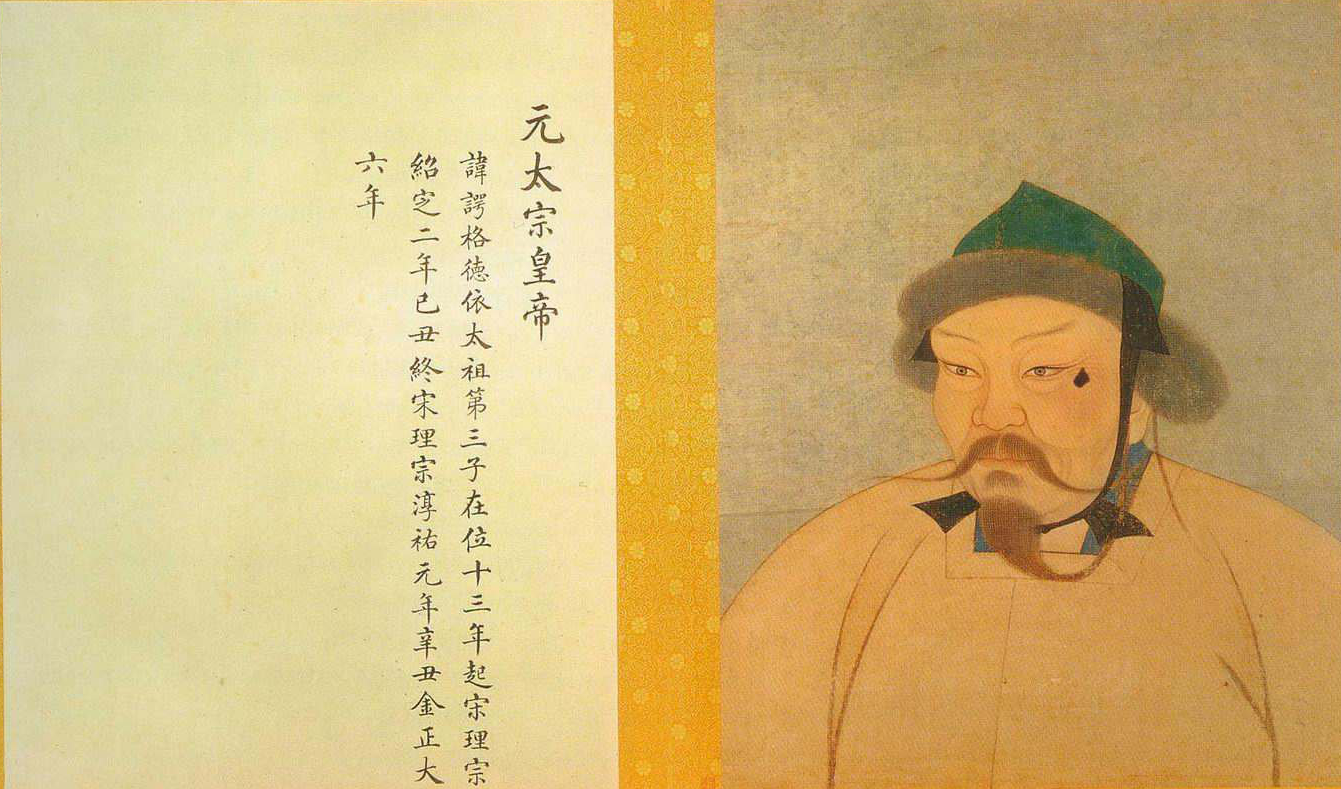
Chinggis Khan was never a Khagan in his lifetime, he was only Khan — a tribal chief — right up to his death. He had no notion of what an empire was. All his wars — all the armies that he sent to China, to Central Asia, and also that famous raid on Russia — all that was part of a campaign on various fronts. He sought to punish, to take revenge on a number of his enemies — tribes that had been hostile to his family, and nations that did not want to collaborate with him when he was punishing these other enemies. They did not want to help him, or they betrayed him.
So Chinggis Khan’s life was not about the conquest of an empire, no, it was simply the pursuit of vengeance. And this is exactly what he was doing when he fell from his horse in Northwest China fatally injuring himself. He was then taken to Mongolia to be buried.
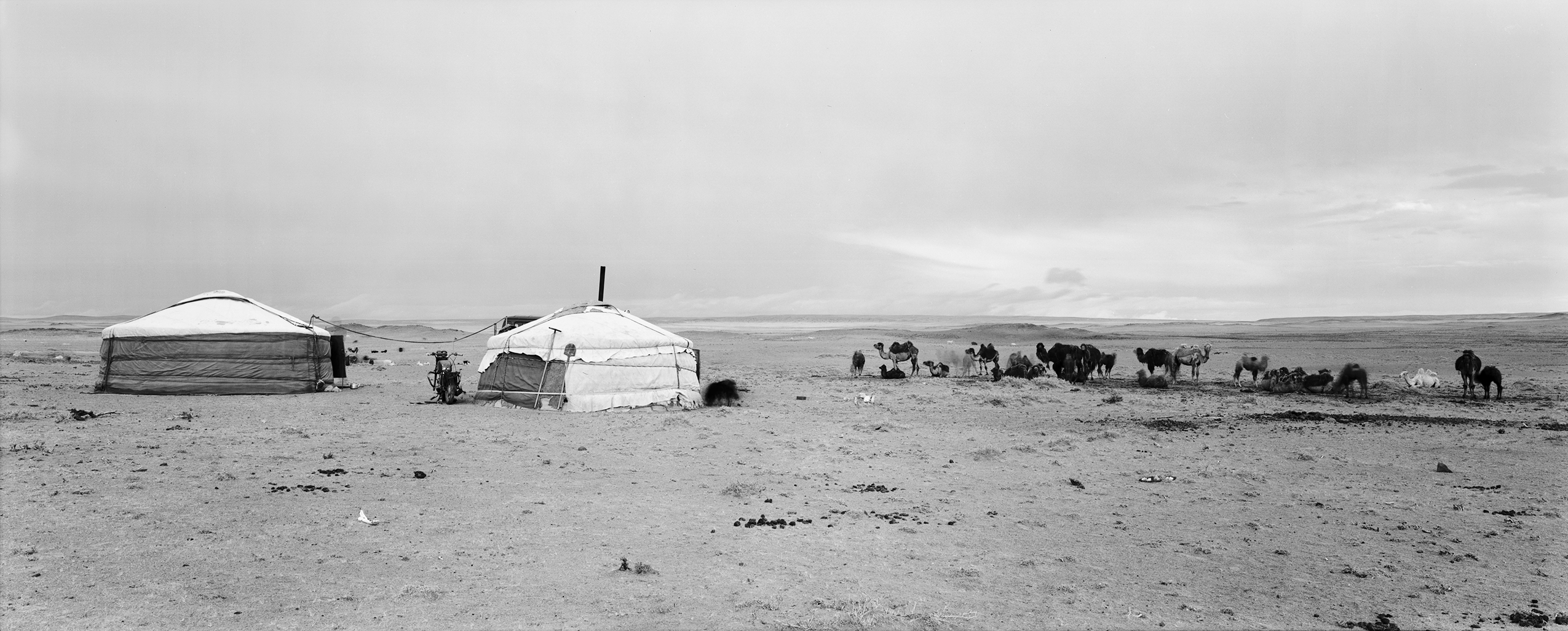
The empire was created by his successor who first had to finish the conquests that had been started by his father. When I read the book by Prawden all those years ago I had learned of the existence of the Secret History and about the attempts made to translate it. The original Mongolian had been lost, and it was only preserved in a phonetic transcription into Chinese made during the early Ming dynasty. So it wonderfully combined Chinese with Mongolian — just the book for me.
Nicholas: It sounds like a very complicated text to translate, considering it originated from the time right after Chinggis Khan’s death, but it then transformed over the years — possibly with different authors. And the text that you translated was actually a Chinese version from centuries later.
Igor: Well, in the end there is only one full text to translate because there is only one existent Chinese phonetic transcription of the whole work with a word-by-word Chinese translation alongside the transcription, followed by short summaries at the end of each section. So that helped with the translation considerably.
In the 1920s, they found a Mongolian chronicle which had more than half of the text of the Secret History in Mongolian. So one could compare the text preserved in Mongolian and the one that was done in China, and there are quite a number of differences. Right now several scholars are busy comparing the Chinese translation with the Mongolian. When the Ming scholars opened the archives they found many scripts of the Secret History, and they turned it into a Chinese phonetic transcription and translation. At the same time, the Mongolian texts still existed independently in Mongolia. Obviously it was a copy of the original — maybe the original forsaken by the Mongols after the fall of the dynasty — and then copies were made. But in the seventeenth century a Mongol historian had a Mongolian text of the original version, and he used it in his own work. But there are differences in the texts, in some cases there are things which have been added, or some things that were in the original cannot be found in the Chinese version. This is because during the time of Kublai Khan the Chinese and Mongols actually did some editing of this manuscript. For instance, they changed certain words. They changed the title of Khan into Khagan. So in the Secret History, Chinggis Khan is called always Chinggis Khagan, but they slipped once, and for that reason there is one case in which he is called Chinggis Khan. So, they did a bit of fiddling with the text, but on the whole they respected it. I would say that most of the changes they made in China were in terms of form, not so much in regard to the actual content.
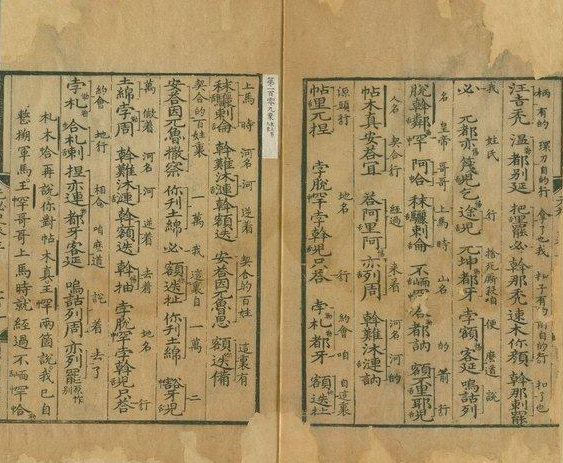
Ivan: I believe that your translation of The Secret History has recently been made available as an open-access ebook?
Igor: Yes. Professor John C. Street and I decided to offer it to Western Washington University in Bellingham, which specialises in Mongolian. They accepted, and so we produced an abridged version that contains a much shorter introduction. I also made some small improvements to the translation, and included several handy indices which allow the reader to follow up on any subject of The Secret History, including proper names, place names, topics, and so on. And this online edition is free, so anybody can download it. For those who want to know more about The Secret History, in our Introduction we recommend a number of books and articles which the general reader or student can easily find; they are in English and are not rare books. Of course, for those who get interested in the details of The Secret History we provide footnotes that refer to the larger work which I’ve published in three volumes.
A Pax Mongolica?
Ivan: It seems to be quite fashionable today to compare the dynamics of the Pax Mongolica with what is going on in terms of globalisation. Do you think this is a legitimate point of comparison?
Igor: No, no. In modern globalisation local products and ideas are supposedly passed on and distributed all over the world for the benefit of the people, not only for the benefit of the originators. I find The Secret History fascinating from absolutely every angle because it’s an encyclopaedia of knowledge about a people that was able to achieve so much in such a short time — but so much what? So much in terms of the conquest and exploitation, nothing for the common benefit of humanity.
When we speak of Pax Mongolica, it’s not like Pax Romana. While the expression Pax Mongolica is based on the idea of Pax Romanica or Pax Britannica, they are completely different. The Romans were extremely cruel in suppressing and pacifying the people they conquered, just as bad as the Mongols, if not worse in some cases. But once they had pacified them they introduce good things: roads, wealth, cities, all of the apparatus of a great civilisation, including reading, writing, the cultivation of the vine. The Mongols did nothing of that kind. When they decided to have an empire the Mongols were only interested in conquering. From Ögedei on, after the Mongols conquered a country they would squeeze it as much as they could by means of a very strict taxation system. Their success in improving the system of communications, the encouragement of trade, the expansion of money-making enterprises, the development of a relay postal services, and the division of the empire among the children and descendants of Chinggis Khan, all had one aim and one aim only: to make as much profit, as much money, from their subjects as possible. They provided virtually nothing, or very little, in return.
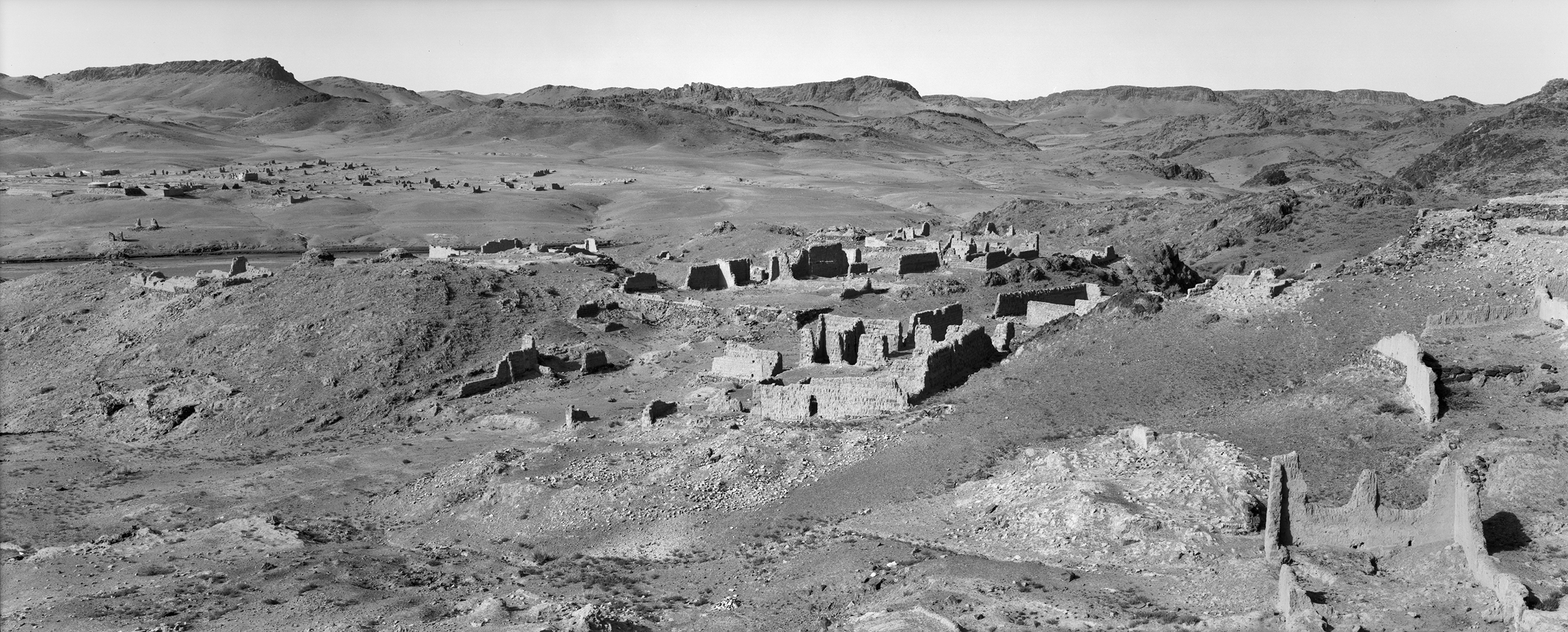
But here, as with everything, there are exceptions. So Peking, and the palaces of Peking, were built by Kublai Khagan, and other cities were also created by Mongol rulers. They completed the Grand Canal, facilitating trade and communication between north and south China. They integrated the country, really unifying China [after the disunity of the Southern Sung 南宋, the Hsi-hsia 西夏 and Chin 金 dynasties]. Nevertheless, the key reason for these positive achievements was profit. Perhaps the greatest aim of China is to transform and civilise things through ideas, language, ritual, mores; the Mongols didn’t have any interest in such things. They paid little attention to how to run the place, and it deteriorated and the Mongols spent a lot more money maintaining their rule than they actually were able to squeeze out of the Chinese or Central Asians. This, combined with natural disaster, resulted in the collapse of the whole edifice of empire in a comparatively short period of time. In not much more than a century the whole thing fell apart. Afterwards, very little remained of Mongol culture.
So Pax Mongolica is a misnomer, not only because of the principles underpinning the Mongol empire, but also because it is historically incorrect. People happily continued to fight and kill each other during the supposed Pax Mongolica, just as before. The reason Marco Polo did not go back to Venice via the Black Sea in 1292 was because the princes of the house of Chinggis were fighting amongst themselves and the route was impassable.
Chinggis Khan, the Pope, and Julius Caesar
Nicholas: Could you tell us how you feel about Chinggis Khan on a more personal level? You have spent an entire career working with the story of this man, so you must have some sort of personal connection to him and his descendants.
Igor: I am very impressed that he could survive. If you read The Secret History, it is quite entertaining in parts. Anybody else would have died a hundred times. He was incredibly lucky, and everybody realised this because even during his lifetime he was called ‘Fortunate’. He said: ‘I owe this to Heaven alone.’
When the Pope communicated with the Mongols as they were pressing on Europe he declared that Chinggis must convert and subordinate himself to the Christian God to achieve happiness. Chinggis responded: ‘Look here, you can come and worship me: I am protected by God.’ From his perspective it was thanks to God, to Heaven, that he was able to conquer everything. The Mongols were able to subjugate virtually every country they went to. So, in Chinggis’s mind, he was the Protected One and he would not have been able to achieve any of it without Divine protection.
Ivan: So you admire Chinggis Khan?
Igor: I admire him. He was very canny in being able to deal with difficult situations. He had an instinct for knowing the smartest way of doing something, how to forge alliances, and then, when necessary, to change position just at the right moment. He also had the knack of always appearing as if he had been wronged, that he was the victim. In fact, others were his victims. He was a professional strategist, and a man who knew the human heart and motivations so well that he was always one step ahead.
It’s not as though I admire him for his positive human qualities. In his way he was a genius, as well as being a ruthless conqueror. But was he better or worse than, say, Julius Caesar? I think Julius Caesar was probably worse than Chinggis Khan. Chinggis Khan did not break his own code. He had a code, which unfortunately has not come down to us as in complete written form, but we can reconstruct it from the evidence available. And he was a puritan in the sense that he strictly stuck to the principles of his nomadic culture, which was ruthless and based on the instinct for survival. But Caesar? He was a monster of a man. He had his best friends murdered, he betrayed people; for him the life of an enemy was not worth anything.

Images of Chinggis Khan
Nicholas: How have the imagery and depictions of Chinggis Khan and the Mongol Empire changed over the last century in Mongolia itself? You mentioned that when you first started going to Mongolia four decades ago, you couldn’t even talk about Chinggis Khan. But now it seems as though Chinggis Khan is the most popular figure there.
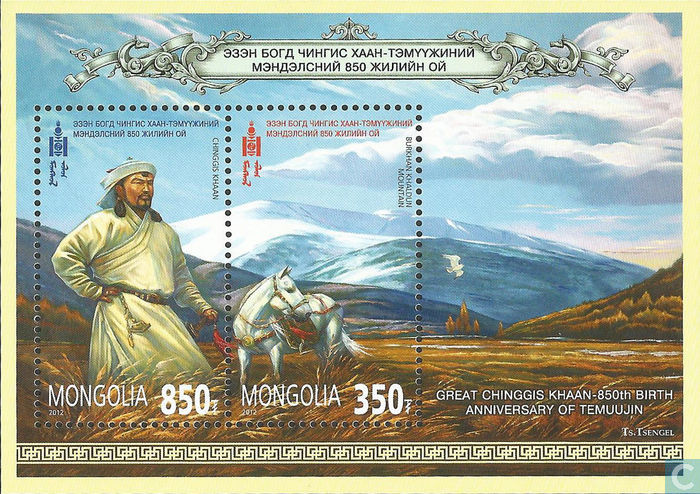
Igor: Well, the fame and legend of Chinggis Khan is unrivalled in Mongolia. The tales and the saga of Chinggis Khan that developed among the Mongols after his death created a myth beyond the reality of Chinggis Khan’s life as it really was. This myth encompassed not only Chinggis Khan and his real and mythical adventures, but also the deeds of those closest to him, the ones that helped him achieve his greatness — a group usually referred to as the Nine Companions. With the development of printing and storytelling after the seventieth century, an unparalleled image of Chinggis Khan evolved. So much so that he was also inserted into the Tibetan Buddhist pantheon, and connections were established between Chinggis Khan and the Buddha himself. This was something totally unimaginable at the time of the Mongol’s Yuan dynasty. The Tibetans abetted the process of myth-making. Unfortunately, this all unfolded in tandem with the conquest of Mongolia by the Manchu, or Ch’ing dynasty 清朝, and with the terrible decline in the standard of living of ordinary Mongols. Meanwhile, a very small Mongol nobility allied with the Manchu government prospered.
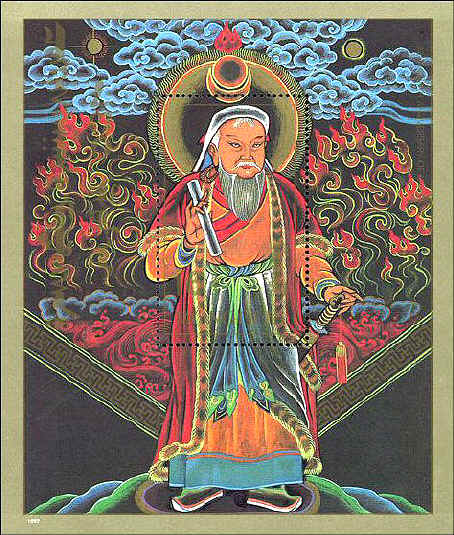
Things decayed so much so that, by the nineteenth century, Mongolia had living conditions that were little better than those of a ‘third world country’. Things were ripe for change, and that came, of course, with the collapse of the Ch’ing in 1911, followed soon after by the collapse of the government in Urga. This marked a shift for the Mongols from being subjects of the Manchus, to a become a people who had to take orders from Soviet Russia. They occupied an unenviable position between China and Russia, and during that era Mongolian aspirations, and Chinggish Khan as a symbol of national identity were repressed pitilessly.
When they cast off Communism the Mongols were able to become more or less normal again. But this was very difficult during the first years of the 1990s, and represented a certain crisis of identity. During that time, the Mongols found that in all their history nothing comparable to Chinggis, and that they had been under the thumb of alien regimes of one kind or another for hundreds of years. Naturally, therefore, the image and legend of Chinggis Khan enjoyed a revival. Moreover, there was money in it. Not that the ordinary Mongols have benefitted much from all of that, because they are in many ways poorer now than they were even before. But the class that dominates Mongolia, which is a bit similar to the oligarchs in the former Soviet Union, is able to make a lot of money out of the Chinggis cult.
Fortunately, a by-product of the revival of all these myths, and the building of statues and monuments, is that there is also some good research being done in Mongolian universities on The Secret History, on the other chronicles, and all the things that we’ve been talking about. So, maybe, with all the money that the Mongols are making out of their mining boom, culture, which is in very bad shape, might also benefit.
An Archaeological Mystery (probably) Solved
Ivan: The location of Chinggis Khan’s tomb is a fascinating archaeological mystery. In 1997, you led an expedition in Mongol to the place where the burial site is thought to be located. What did you find there? Have there been any new developments in the search for his final resting place?
Igor: The government, by the action that it has taken in recent years, proves what they always told me when I was there — that Chinggis Khan is buried on Mount Khentii Khan, which is the old Burkan Khaldun. Naturally, Chinggis Khan didn’t want to have his tomb desecrated by grave-robbers, which would damage not only him, but also his descendants who were to be buried there. Nowadays, the government as well as the Mongolian Academy of Science don’t want anybody to dig there either. So, until they open the tomb and actually find him, we will never know for sure whether that is the right location. Nonetheless, all the evidence points to that being the site of his tomb, particularly in the way that the authorities now protect the whole mountain and have imposed very strict rules about who is permitted to enter the area. This would seem to indicate that Chinggis Khan and the other members of his family, including Kublai Khagan, are buried there. People are still looking in other places. Regardless, Chinggis Khan has done a good job of attracting attention without being officially discovered.
Nicholas: His final triumph.
Igor: Yes.
Nicholas: On that note we would like to thank you for taking the time to talk to us about your life’s work.
Ivan: Thank you very much, it was an honour.
Igor: I hope I have been of some help.
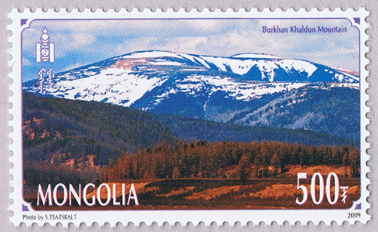
Further Reading (from Chinoiresie):
- Igor de Rachewiltz, The Secret History of the Mongols: A Mongolian Epic Chronicle of the Thirteenth Century. For an abridged version of this work, edited by John C. Street and made available in 2015, click here
- Owen Lattimore, ‘Chinggis Khan and the Mongol Conquests’, Scientific American, vol.209 no.2 (August 1963): 54-69
- John Man, Genghis Khan: Life, Death, and Resurrection, London: Transworld Publishers/Bantam Books, 2005
- John Man, The Mongol Empire: Genghis Khan, His Heirs and the Founding of Modern China, London: Transworld Publishers, 2016
- Laszlo Montgomery, ‘The Mongol Yuan Dynasty,’ The China History Podcast, 2016, Part 1; &, Part 2.
&, also in China Heritage:

